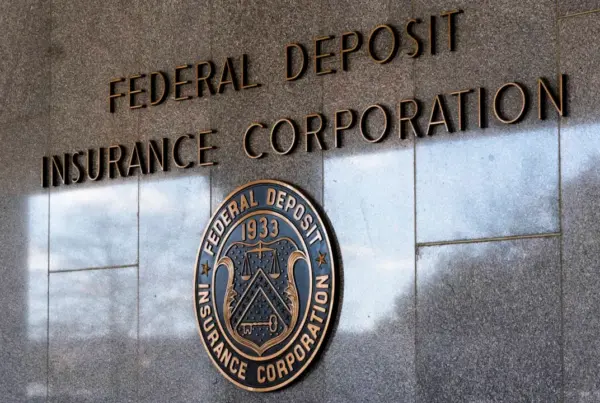FDIC’s Proposed Rule on Brokered Deposits: Key Insights for Financial Institutions
On August 23, 2024, the Federal Deposit Insurance Corporation (FDIC) proposed significant regulatory changes concerning brokered deposits, aiming to enhance the stability of the banking sector. This proposed rule seeks to redefine the scope of what constitutes a “deposit broker,” reflecting the evolving landscape of financial services. The significance of this rule lies in its potential to reshape how banks and other financial institutions manage their deposit-taking activities.
Historically, the FDIC has implemented various measures to regulate brokered deposits, primarily under Section 29 of the Federal Deposit Insurance Act (FDIA). The current proposal builds upon previous amendments aimed at addressing concerns related to the risk of instability posed by brokered deposits. The primary issue addressed by this regulatory action is the need for clearer definitions and guidelines to ensure that deposit brokers operate within a framework that promotes financial stability and consumer protection.
Key Regulatory Changes & Analysis
1. Expansion of the Definition of Deposit Broker
The proposed rule expands the definition of a deposit broker to include a broader range of entities that facilitate the placement of deposits.
- Previous Definition: Under the existing framework, a deposit broker was primarily defined as an entity that places deposits on behalf of others.
- New Definition: The proposed rule includes additional categories of intermediaries, such as fintech companies and other service providers that connect consumers with deposit accounts.
This change is significant as it may increase the number of entities classified as deposit brokers, thereby subjecting them to regulatory scrutiny under the FDIA.
2. Enhanced Reporting Requirements
The FDIC’s proposal introduces new reporting requirements for institutions engaging with deposit brokers.
- Key Changes: Financial institutions will need to maintain detailed records of transactions involving deposit brokers and report these activities to the FDIC.
- Impact: This will likely increase compliance burdens and operational costs for banks and other financial institutions that utilize brokered deposits.
3. Clarification of Exceptions
The proposed rule clarifies certain exceptions to the definition of deposit brokers, particularly for entities that engage in deposit placement under specific conditions.
- Previous Exceptions: Prior regulations offered limited clarity on what constituted an exception.
- New Framework: The proposed rule outlines precise criteria under which certain entities may be exempt from being classified as deposit brokers, thereby reducing potential regulatory burdens.
Legal and Industry Implications
The proposed changes present several legal and operational implications for affected parties:
- Compliance Burdens: Financial institutions may face increased compliance costs associated with the expanded definition and reporting requirements.
- Regulatory Risks: The potential for non-compliance could lead to enforcement actions, as the FDIC has historically been vigilant in monitoring brokered deposit activities.
- Litigation Considerations: Institutions may face legal challenges related to the interpretation of the new definitions and reporting obligations.
To mitigate these risks, law firms and financial institutions should proactively assess their current practices and prepare for potential regulatory scrutiny.
Recommended Actions & Compliance Strategies
Affected financial institutions should consider the following actions:
- Conduct a Compliance Review: Assess current practices regarding brokered deposits to identify areas of non-compliance with the proposed rule.
- Update Internal Policies: Revise operational and compliance policies to align with the new definitions and reporting requirements.
- Engage with Legal Counsel: Consult with legal experts to navigate the complexities of the proposed rule and ensure adherence to regulatory obligations.
- Public Comments: Institutions are encouraged to participate in the public comment period to voice concerns or support regarding the proposed changes.
Conclusion & Next Steps
In summary, the FDIC’s proposed rule on brokered deposits represents a significant shift in regulatory oversight, with implications for a wide range of financial institutions. As the industry prepares for potential implementation, stakeholders should remain vigilant and proactive in adapting to these changes.
The timeline for final implementation of the rule remains uncertain, and further regulatory developments may arise as the FDIC reviews public comments and assesses the feedback received. Institutions should stay informed about ongoing discussions and potential legislative actions that could influence the enforcement of this rule. By taking proactive measures, financial institutions can better position themselves to navigate the evolving regulatory landscape surrounding brokered deposits.


